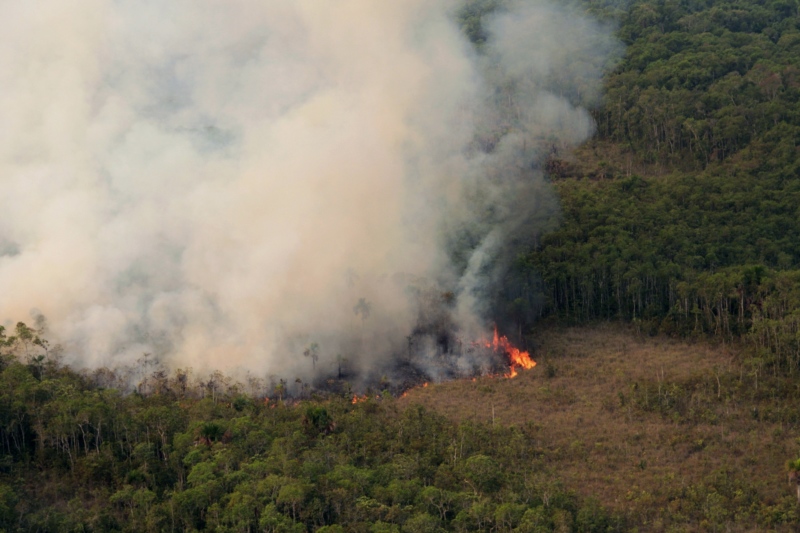Rising Brazil: The Choices Of A New Global Power
What should we expect from a newly powerful Brazil? Does the country have the capacity and leadership to be a central actor in addressing critical global and regional problems?
By now, everyone with internet access is familiar with the grim situation unfolding in Brazil’s Amazon rainforest. The ongoing blazes have been the source of widespread outrage over the policies and rhetoric of Brazil’s president, Jair Bolsonaro. Several countries have offered aid while also threatening punitive measures such as boycotts. Bolsonaro, in turn, has seethed over the international community’s “colonial mindset,” asserting Brazil’s sovereignty over its territory and repeatedly issuing reminders of the historical deforestation of Europe.
The situation in the Amazon exposes the very heart of the greatest collective action problem that humanity has faced, and it foreshadows harder battles to come. The actions of each individual country have consequences for the global climate, yet perpetrators are loath to make sacrifices when others, especially those with equal or greater responsibility, are not doing the same. The fact that threats of economic punishment seem to have shifted Brazil’s behavior—Bolsonaro finally sent in its military to fight the fires and agreed to a meeting of Amazon countries to be held this Friday—suggests that a similar approach could be taken to address climate change on a larger scale.
[…]
What should we expect from a newly powerful Brazil? Does the country have the capacity and leadership to be a central actor in addressing critical global and regional problems?
President Lula da Silva triumphantly announced that he and his Turkish counterpart had persuaded Iran to shift a major part of its uranium enrichment program overseas—an objective that had previously eluded the US and other world powers. Washington, however, was not applauding.
In the past year, the Bolivian government has emerged as an outspoken critic of climate change policies.
 Ibama / Wikimedia Commons / CC BY 2.0
Ibama / Wikimedia Commons / CC BY 2.0